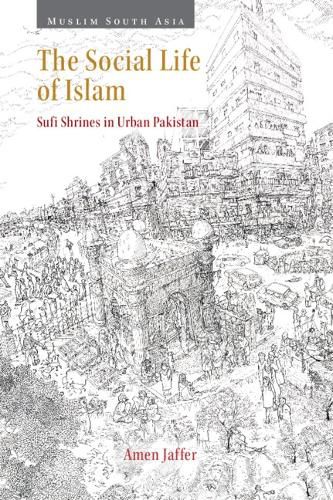Readings Newsletter
Become a Readings Member to make your shopping experience even easier.
Sign in or sign up for free!
You’re not far away from qualifying for FREE standard shipping within Australia
You’ve qualified for FREE standard shipping within Australia
The cart is loading…






How do Islamic discourses, practices and symbols become a concrete and meaningful facet of the lives of individuals and communities in the cities of contemporary Pakistan? How do they constitute relationships between neighbors, friends, relatives, strangers, and various urban groups? In other words, how is Islam woven into and how does it shape the social fabric of urban Pakistan? The Social Life of Islam addresses these questions through an ethnography of Sufi shrines in Pakistan's second largest metropolitan center, Lahore. It argues that Sufi shrines' position as a vital hub of metropolitan public life is critical to their capacity to serve as a conduit for Islam. Connecting urban studies with the study of religion, this book explores the minutiae of social interactions in everyday life that constitute Sufi shrines as a key social, political and religious space for the mediation, contestation and reproduction of social relations in the city and for producing a distinct embodiment of Islam.
$9.00 standard shipping within Australia
FREE standard shipping within Australia for orders over $100.00
Express & International shipping calculated at checkout
How do Islamic discourses, practices and symbols become a concrete and meaningful facet of the lives of individuals and communities in the cities of contemporary Pakistan? How do they constitute relationships between neighbors, friends, relatives, strangers, and various urban groups? In other words, how is Islam woven into and how does it shape the social fabric of urban Pakistan? The Social Life of Islam addresses these questions through an ethnography of Sufi shrines in Pakistan's second largest metropolitan center, Lahore. It argues that Sufi shrines' position as a vital hub of metropolitan public life is critical to their capacity to serve as a conduit for Islam. Connecting urban studies with the study of religion, this book explores the minutiae of social interactions in everyday life that constitute Sufi shrines as a key social, political and religious space for the mediation, contestation and reproduction of social relations in the city and for producing a distinct embodiment of Islam.